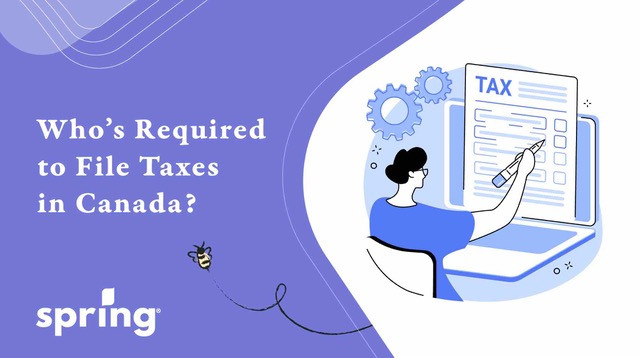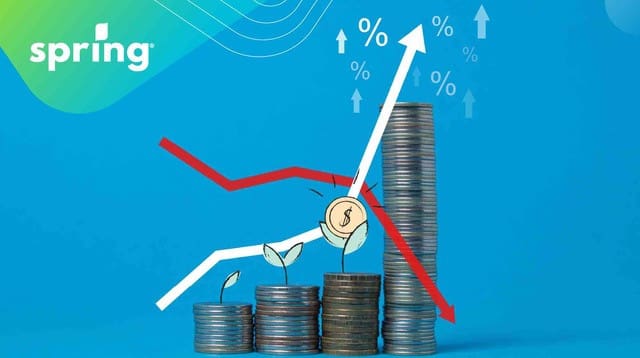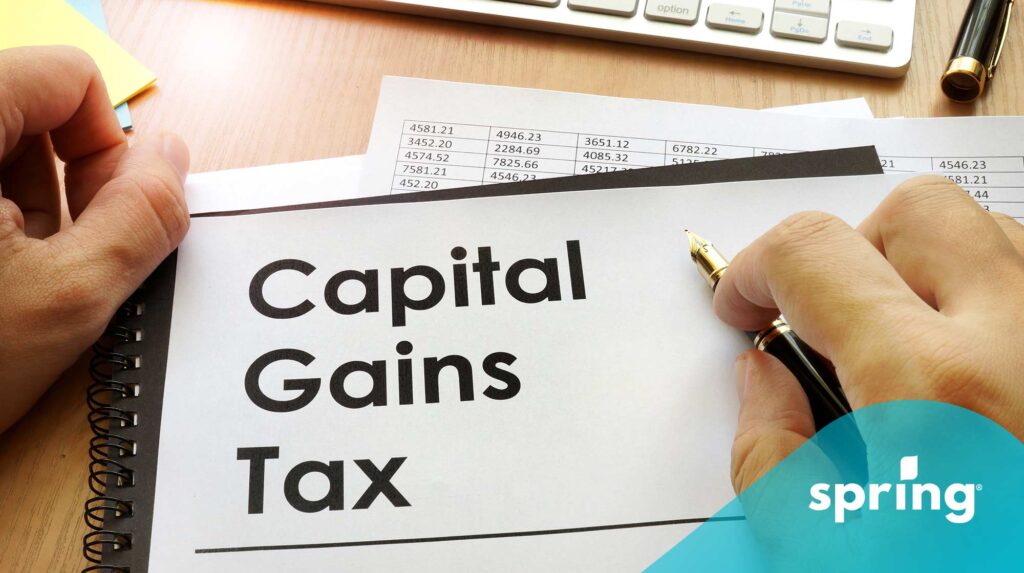The Minimum Income To File Taxes In Canada
In Canada, there is no minimum income requirement in order to file your Canadian income tax return. Once you start earning income of any kind, you need to start paying your taxes. That being said, how much income is earned annually dictates how much you will have to pay in taxes.
| Percentage | Income Amounts |
| 14% | $58,523 and under |
| 20.5% | $58,523 – $117,045 |
| 26% | $117,045 – $181,440 |
| 29% | $181,440 – $258,482 |
| 33% | $258,482 and up |
How it works is if you make $221,708 per year, you would pay 14% on the first $58,523, and then it goes up from there, following that pattern.
When To Start Paying Taxes In Canada
In Canada, you start paying taxes when you start earning income; however,
there are some advantages to filing your taxes when you just enter the workforce. If you are under the age of 18 and you earn less than the basic personal amount per year, you still have to file, but you can get a return on a partial amount of the taxes you paid.
How The Basic Personal Amount Works
If you are under 18 and make less than around $16,129 per tax year, that’s when you will receive a partial refund on the taxes you paid. That is because this is the current basic personal amount for the year.
Minimum Income to Pay Taxes in Canada
Currently, for the 2025 tax year, you don’t need to pay taxes if you make less than $16,129. However, with our current tax system, you won’t be eligible for certain government programs, and you will miss out on government money if you don’t file.
No matter how much money you make during the year, you’re still going to receive tax slips. These tax slips will tell the Canadian government how much you earned, therefore allowing them to determine your eligibility for their programs.
From there, you can provide relevant documents to claim other benefits such as territorial credits and moving expenses. You can do this online or through a paper tax return.
Do You File Taxes if You Make Less Than $5,000 Per Year?
While you won’t have to pay any taxes to the federal government when you make only $5,000 per year, you could be missing out on benefits you’re entitled to if you don’t file.
Do You File Taxes If You Make Less Than $10,000 Per Year?
In short, yes. You have to pay taxes on any amount that you make per year. The less you make, though, the less taxes you pay. Because you make a smaller amount each year, you are eligible to receive different amounts from the government since you would be considered low-income. Of course, this ultimately depends on your age and living situation as well.
Getting A Refund If You Have No Income
If you receive no income, you are likely not to receive any tax refund, even if you file a Canadian tax return. This is because you need to pay taxes in order to receive a tax refund. Keep in mind that filing a tax return affects not only your federal income taxes, but also your provincial or territorial taxes.
Filing Taxes If You Have No Income
While it is not required to file your income tax return if you have no income, you will not be able to receive any money you are eligible for without filing your income taxes. Here is a list of those government benefits.
- Canada Child Benefit
- Disability benefit
- Pension
- Old Age Security
- Guaranteed Income Supplement
- Canada Workers Benefit
- GST/HST
While you do not need to have an income to receive these amounts, you will need to file your taxes in order to receive them.

Who Is Exempt From Canadian Taxes?
There are two main instances where you would be exempt from paying taxes in Canada: Low income and the Disability tax credit.
Low Income
If you make less than $40,000 per year in taxable income, you are likely to be exempt from most taxes. Don’t forget this is household income. If you and your spouse or other household members make over $40,000 combined, then you would have to pay the minimum tax. However, there are instances where you make less than $40,000.
- You report a capital gain from/taxable Canadian property that’s taxable.
- You claim a loss from investments or resource properties
- You Claim:
- a federal political contribution tax credit
- an investment tax credit
- a labour-sponsored funds tax credit
- a federal dividend tax credit
Disability Tax Credit
The disability tax credit is a non-refundable tax credit that helps those who are impaired by reducing or eliminating their taxes. The amount you are exempt from paying is based on how much you earn.
In order to qualify for the disability tax credit, you must have a severe and prolonged impairment and have a certified document from a doctor confirming this. These include:
- Walking
- Mental Functions
- Hearing
- Speaking
- Dressing
- Vision
- Feeding
- Eliminating
- Life Sustaining Therapy
Who Doesn’t Have to Pay Taxes in Canada?
While not everyone is required to file taxes in Canada, let’s go over some of the situations that do require you to file taxes in Canada.
- Suppose you have to pay taxes for the year. There are a lot of reasons you may have to pay Canadian income taxes when you file, like rental income, self-employment and other employment situations.
- Suppose you want to claim a refund. While filing isn’t required, it is the only way to receive the refund, whether it is a federal tax refund or a provincial or territorial refund.
- You want to claim the CWB (Canada Workers Benefit) or have received advance CWB payments. This is a refundable tax credit that helps individuals and families who are low-income.
- You and/or your spouse want to keep receiving government benefits like the CWC, GIS, and the Canada Child Benefit.
- The CRA has sent you a request to file a return. This happens when the Canada Revenue Agency has noticed that you should have filed your taxes but have failed to do so.
- You and your partner are choosing to split your pension income.
- You have disposed of a capital property or realized a capital gain. These situations would occur if you have any investments or are into day trading.
- You have to repay any of your OAS (old age security), EI (employment insurance), or CRB (Canada recovery benefit) benefits.
- You haven’t repaid the amounts from your RRSP regarding the Home Buyers Plan or the Lifelong Learning Plan. After you borrow from either of these plans, you have an allotted number of years to pay these off. You do this by claiming a certain amount of your RRSP contributions every year on your taxes as repayment. This means you do not get a tax deduction for these amounts, which are considered repayments. Paying these amounts back on time avoids a tax penalty; however, it will affect the amount of tax payable, so keep that in mind.
- You can contribute to the CPP (Canada Pension Plan). Since most jobs, including a certain amount of self-employment income, have amounts that get contributed to CPP, you need to file.
- You pay EI premiums on any self-employment income or any other type of income that’s considered to be eligible.
- You have previous tuition or education fees that you have not yet claimed. Because you are entitled to a tax break by claiming to be a student as well as your school expenses and tuition, it is important to claim that for a refund. The good thing is, even if you miss or forget about it one year, you can claim it on the next year’s tax return.
- You want to report any income that allows you to contribute to any type of RRSP. Instead of pension plans, many employers offer RRSPs(registered retirement savings plan) that they contribute to as well as you. You would have to claim that income in order to be eligible.
- You have income that you want to report in order to increase your Canada training credit limit. The Canada training credit is a tax break for students, and any expenses incurred in relation to being a student.
- Lastly, you want to file if you have an unused investment tax credit on expenses that came across from the current year to a future year.
If You Don’t File Your Taxes In Canada
Not filing your taxes if you are required to is considered tax evasion. The longer you avoid them, the harsher the penalties, but after 10 years, your time has lapsed. You have 10 years from the end of the calendar year to file your taxes, but it is recommended that you do so immediately.
The penalties for tax evasion include having to pay the amount you owe in back taxes with penalties and interest that can add up to as much as 200%. There is also a possibility of up to 5 years’ jail time.
Filing Your Taxes If You Aren’t Required To
Overall, whether you are required to or not, you should file your taxes. Even if you don’t owe, there are benefits to filing, such as government benefits and return amounts. Depending on the complexity of your tax return, you could file it yourself or consult with a tax professional. Often, there are many ways we can earn a higher tax return amount than we are aware of, and an accountant can help you with that.
Even if you do owe money, a tax professional can look over your finances and expenses and let you know if there are ways you can save some money. Avoiding your taxes if you have to file does not mean you won’t end up having to pay them. It puts you at risk for tax evasion, which means you will likely end up having to pay more money on the taxes owing than if you had done your taxes originally.
Employment Insurance Benefits And Income Tax
Since employment insurance benefits are considered to be a form of income, the CRA requires you to pay tax on any amounts received. Just like you would receive a T4 for your employment income, you would also receive a tax form for any EI benefits received. You’d then use this form to claim any taxable income you received for the tax year.
If you received EI income, it’s still possible to receive an income tax refund. It’s also possible to owe money, which you could pay all at once or in tax installments. Even if you receive EI, you also have to report income from other sources, like Worksafe or employment income.
If you file your taxes online during tax season, you can use the CRA MY ACCOUNT to upload all of your tax forms to the tax software. You can also file your family members, such as your spouse or common-law partner, and your annual household income will be calculated. It will also allow you to see what you’ll get as a refund or what you’ll owe as a family.
Filing Taxes if you Receive Non-Taxable Income
Even if you receive non-taxable income, you can receive refunds for certain credits you qualify for to gain eligibility for government programs. In fact, by filing your income tax return, you could actually save money. Depending on where you live in Canada, you can get sales tax credits, defer tax on your Registered Retirement Savings Plans (RRSPs) contributions, and even qualify for some tax breaks if you have your elderly parents live with you.
You don’t just have to be a Canadian resident to file your taxes, though; you just have to be a resident for tax purposes. This includes international students who have a part-time job, a full-time job, or no job. Residential ties are also considered for tax purposes.
Final Thoughts
When you file your taxes in Canada, the amount of tax you pay is determined by your taxable income. Your tax rates apply based on these amounts and will determine your total tax payable. This will likely differ from previous years. If you don’t have any taxable income, wherever you’re considered to be young adults, adults, or seniors, you can still gain access to benefits that you’re entitled to.
In Canada, even non-residents who are considered to be residents for tax purposes should also file their income taxes. If you’re unsure of what you should do, though, and need help finding the best way to do your taxes, then tax experts can help. Plus, once your taxes are netfiled, you can access a version of your NOA within one business day.








